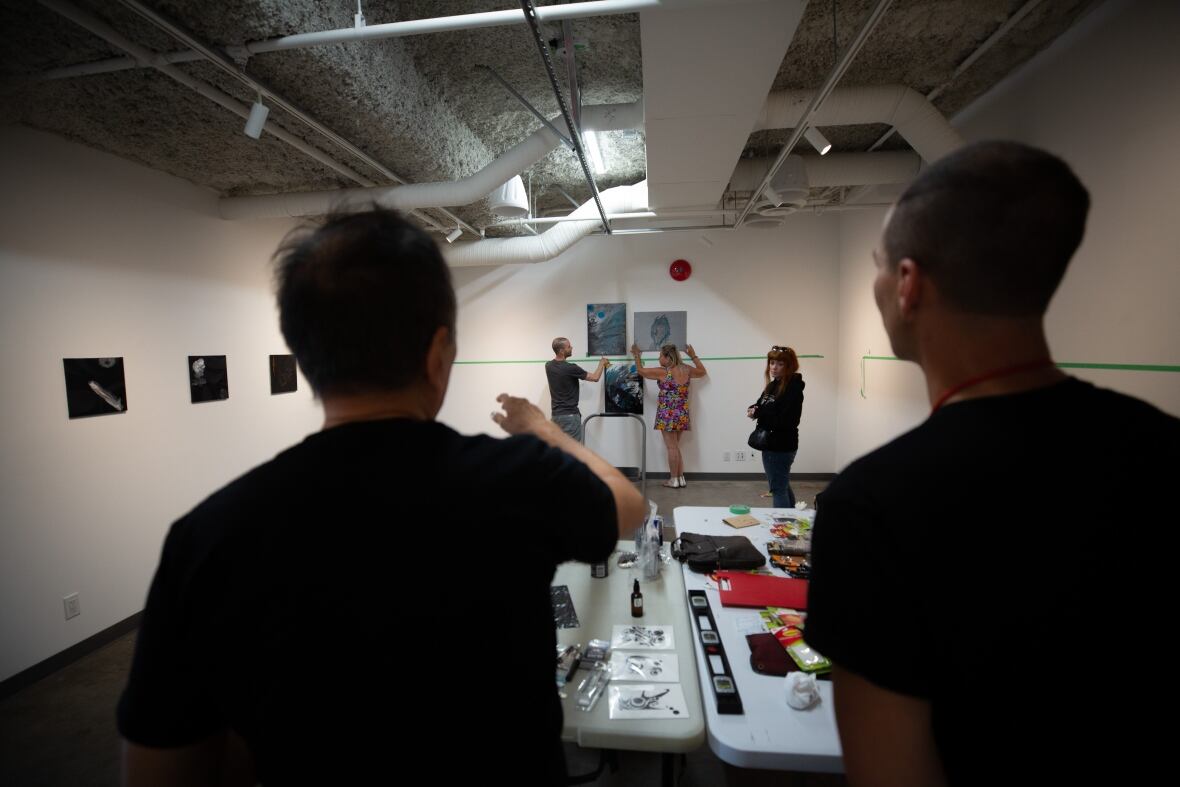Pride Parade grand marshal presents Indigenous fine art exhibit
Artist and activist Idris Hudson presents The Symbol of Unconditional Love

Idris Hudson is a local Indigenous artist and LGBT advocate who has been appointed as one of the grand marshals for this year's Vancouver Pride Parade.
Idris's duties as a grand marshal involve speaking at the proclamation ceremony, which took place this past Monday, and representing the Vancouver Pride Society's 2019 theme, 50 Years and Still Fighting, in Sunday's Pride Parade.
Idris was chosen as grand marshal because of his activism, which includes over a decade of work in harm reduction outreach with survival sex workers.
Being appointed a grand marshal represents a spark of hope for Idris because it means his outreach work has been acknowledged.
"It means that there's hope for everyone I have spoken to who felt so helpless ... hope of being heard."

Outside of his role as a grand marshal, Idris is also releasing his first art show that will take place this Thursday in Chinatown at On Main Gallery.

Setup for the exhibit took place on Tuesday at the gallery, where Idris was joined by his partner, Scott Hutchinson, his media relations manager, Stephanie Deline, and his "bestie," Katrina LaBoucan.



Idris's show is titled The Symbol of Unconditional Love, which is also the name of an actual symbol that he places on all his art.


The symbol indicates that part of the proceeds of that piece of art will go to a localized charity that he defines as "front line survival charities," especially for residents of the Downtown Eastside.

As a low-income artist, Idris says he is grateful to have access to the gallery space provided by Paul Wong Projects.

Paul Wong is a prolific and award-winning multimedia artist and curator, as well as the mentoring figure and president of the Alternative Pride Festival.

Wong and his team chose to sponsor the exhibit soon after Idris showed them some of his work. Wong says it is the perfect content for the On Main Gallery's inaugural exhibition in its Chinatown location.


Idris jumped at the opportunity to receive mentorship from the master curator.


Each piece of art in the show is an abstract representation of a larger societal issue that has affected Idris.
He plans to title all the pieces by the time the doors open on Thursday. But for now, they remain untitled.

This mixed-media piece was inspired by the human impact on nature as well as colonialism.

This mixed-media piece includes pieces of wood that came from a tree in Vancouver's Clark Park. Idris recently learned that his great-great grandfather was E.J. Clark, who donated the land (now Clark Park) to the newly appointed park commission back in the 1800s.
Since the land originally belonged to the Stó:lō Nation, Idris says: "I realized that my family, going back that far, were colonizers."
However, Idris also has Stó:lō Nation heritage, so, as he puts it: "My family (the Clarks) donated my family's (Stó:lō Nation) land — that was taken away from them — to the city of Vancouver."
It's a lot to digest for Idris, but he says turning it into art helps him process the information.

Another piece of art is an abstract self-portrait. It is a print of his hand placed on a textured acrylic canvas with poured metallic resin details.
"For so many years, I felt my hands were tied … what I didn't realize was that my biggest opportunity was right in the palm of my hand."
Idris says the things he hated most about himself, such as high anxiety fuelled by trauma and an inability to focus on one thing at a time, actually ended up being assets, while he produced this varied and meaningful collection of art.

Although his art represents larger societal issues and even provides funds to localized charities, Idris says the true purpose of his art is self-empowerment.
For Idris, an Indigenous two-spirited person who experienced racism and homophobia from a young age, being seen for his art in this exhibit, as well as for his activism on Sunday's Pride Parade, is a spark of hope for those who have spent most of their life feeling unheard and unseen.
